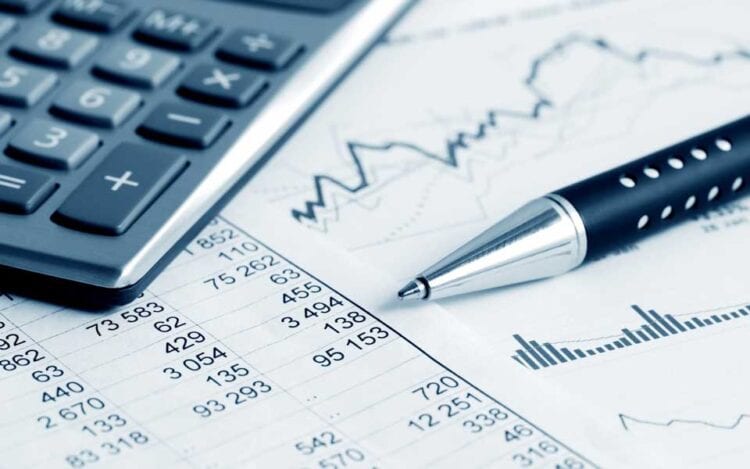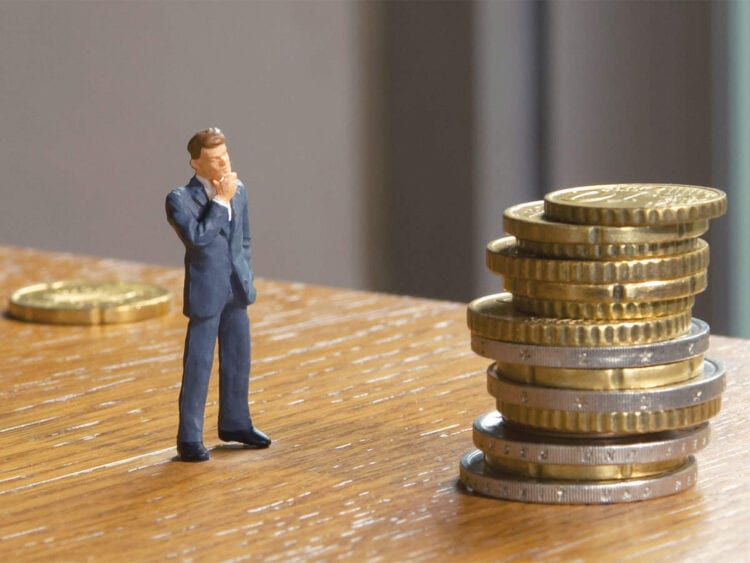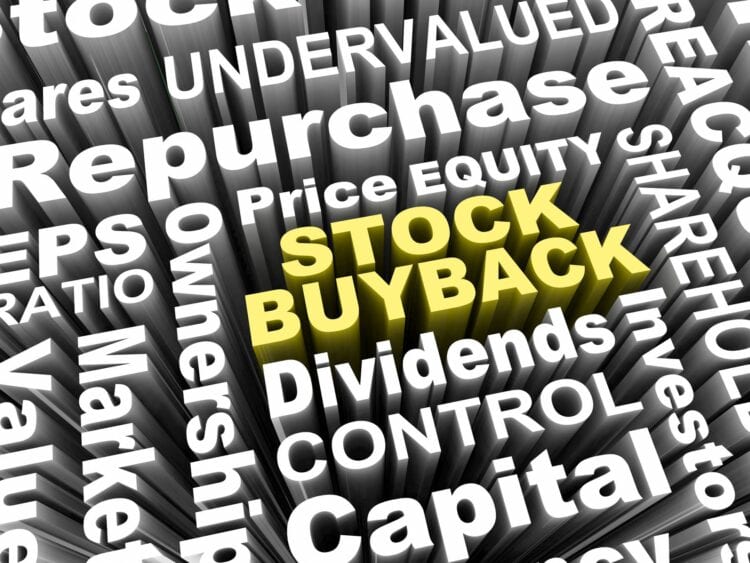Some investors may be wondering why a company with healthy business operations that possesses excess cash is not allocating its wealth to its shareholders through cash dividends. Repurchasing stocks is an alternative for distributing dividends but has a deeper purpose as to the motive it has to be implemented. According to thebull.com.au, share repurchases (also known as share buybacks) occur when the management team of a public corporation acquires additional shares of outstanding stock that formerly traded to the open market.
There are two ways to buy back shares: the corporation can purchase the shares marketed in the public or from its shareholders when they are provided the option. As a result of the buyback, this transaction will decrease the number of shares outstanding. The shares will not be allowed to be sold to the public and recorded as treasury stock in the financial statements. However, the holders of repurchased stocks will not become eligible for voting rights.

Rationale for Stock Repurchases
Repurchases are showing shareholders an affirmative outcome. Therefore, there is a growing number of companies that are considering spending their cash in buying back their stocks. Here are the reasons why the reacquisition of stocks occurs:
-
Improvement of Financial Ratios
The market is keeping its eyes on certain financial ratios. As buybacks take place, the number of outstanding shares drops and will affect financial ratios such as Earnings per Share (EPS), Return on Assets (ROA), and Return on Equity (ROE).

- Earnings per Share (EPS) – This is computed by getting the difference of net income and dividends on preferred stocks and then dividing the difference by the average number of outstanding shares. The Earnings per Share ratio represents the portion of a company’s profit to be distributed per outstanding share. The repurchases will increase the EPS due to the decrease in the average number of outstanding shares.
- Return on Assets (ROA) – Return on Assets ratio is determined by dividing net income by total assets. This percentage measures the profitability of a company’s resources. Through repurchasing, the total assets will be reduced by paying cash in exchange for shares which has a positive impact on ROA since net income is steady.
- Return on Equity (ROE) – Return on Equity ratio is calculated by dividing net income by its shareholder’s equity. This ratio signifies how capable the company is to generate profit from the existing equity. As the buyback occurs, the ROE will be reduced as the effect of diminished total equity and stable net income.
The enhancement of financial ratios is often a spinoff since this is not the only purpose of announcing a share buyback.
Optimism Towards its Undervalued Share Price
It can indicate that the company has excess cash that instead of distributing it to the shareholders through dividends, the cash is spent in repurchasing its own stocks. In addition, stock buyback might denote confidence of the management thinking that the company has a healthy performance. The management may have high hopes for the company despite its undervalued share price due to the acquisition of a company, a launch of a new business line, or other reasons that may appreciate its stock price. This transaction might encourage potential investors to buy since the company is buying its own shares.
Minimizing the Effect of Dilution
During the 1990s, the employee stock option was popularized because it was exercised by the companies in order to compensate its employees without disbursing its cash. The application of the employee stock option has extremely affected the existing shareholders as it diluted its portion of the ownership of the company. With the intention of controlling the dilution, companies started to buy their shares back and can maintain their percentage over the ownership.
New shares are released by companies to the market in order to raise capital. As the issuance of new shares continues, the prevailing shareholders will own a smaller percentage of the company. Repurchasing stocks is one of many ways to aid this problem of the shareholders. Through this transaction, the ownership of the shareholders will rise since the number of shares outstanding has decreased. Aside from buybacks, another way to prevent dilution from occurring is by offering the new shares first to the existing shareholders in proportion to their present percentage. Once the existing shareholders buy the share in its entirety, their ownership will not be diluted.
Beneficial Plans to Spend Cash

Aside from distributing cash dividends, stock repurchasing is also a good way to repay its shareholders and a practical means to consume its excess cash flow. But it can also mean that the company is unable to think of good ideas to use its cash such as expanding its business operations or venturing to a new product line. The management only thinks that the company has provided everything to enhance its performance but is still deemed by the market as low-priced.
How Do Stock Repurchases Are Done?
As soon as companies have decided to buy their own shares, they will be obliged to execute their responsibility of disclosing the reasons behind the repurchase and the information about the method that will be implemented to reacquire stocks. There are four methods in repurchasing stocks.
- Reacquisition Through a Stockbroker – The shares will be repurchased directly at the public market at its current share price with the help of a stockbroker. Despite that it comes with commission fees to be paid on the stockbroker, it is more cost-effective compared to other buyback approaches. This up-front method will have an impact on the stock price by forcing it to escalate.
- Direct Negotiation – Using this repurchase method, the major stockholders are being offered to sell their shares to the company at an appreciated price specified through a negotiation. This approach will be done in order to make sure that the price is reasonable and to avoid the attempt of overthrowing. Or else, the outcome of the purchase will be unfair for the other stockholders.
- Tender Offer to The Company’s Shareholders – The tender offer is an official proposal of a company for the purchase of a certain number of shares at a fixed price. The shareholders will be able to market the tender offer on its proposed price if it is purchased at a great quantity.
- Dutch Auction – The repurchase will be executed by announcing a fixed reasonable price range to shareholders. The shareholders that offered from the minimum range up to the largest bid will be paid at the price of the largest bid. For instance, a company proposes 300 thousand shares with a price range of $30 to $35. The bidding continues until it completes 300 thousand shares and ends with the price of $34. Therefore, all shareholders that bid from $30 to $34 will receive $34 per share.
Effects of Stock Repurchases

Investors must also be aware that repurchasing shares increases the company’s ROA, ROE, and EPS without requiring them to escalate profitability and will only cut costs by decreasing the denominators of these ratios. With the aim of the shares to be attractive for the sellers, the tender price is adjusted beyond the current price.
- Financial ratios are synthetically boosted – If a company frequently repurchases its own stocks just for the purpose of artificially altering its financial statements, it will probably lose its credibility from the open market. As a result, the share price of the company will decline due to a lack of demand as opposed to its objective of pressuring the share value to increase.
- Short-term relief – Investors have the right to know if the company is using stock repurchases to sustain or provide aid to a weak share price. In addition, the buyback can end an excessive dilution of shares done by the company for the shareholders not to suffer.
- Overvalued Stock Price – A company that is repurchasing its own shares because it is confidently believing that it is undervalued has made a good investment decision. However, buying back an overvalued stock will only hurt the shareholder value. Therefore, it is more sensible for the company to allocate excess cash by issuing cash dividends to its shareholders.
In conclusion, the opinion of the management that each company is undervalued is convincing especially if the top managers repurchased its shares. Although this decision will have a positive short-term impact on the stock price, a highly-developed plan to boost the business performance will still provide a greater edge to put an ascending pressure on the share price.

